Need flood coverage?
Inland Flood coverage helps financially protect you from flash flood damage. Covered events include flooding from inland waters overflowing onto normally dry land.*
Updated February 5, 2024 . AmFam Team
The humidity levels in your basement can impact your home and everyone living inside. It can also affect your valuables, electronics and appliances. In this article, we'll discuss ideal basement humidity levels. We'll also give tips to help you address, monitor and manage moisture in your basement.
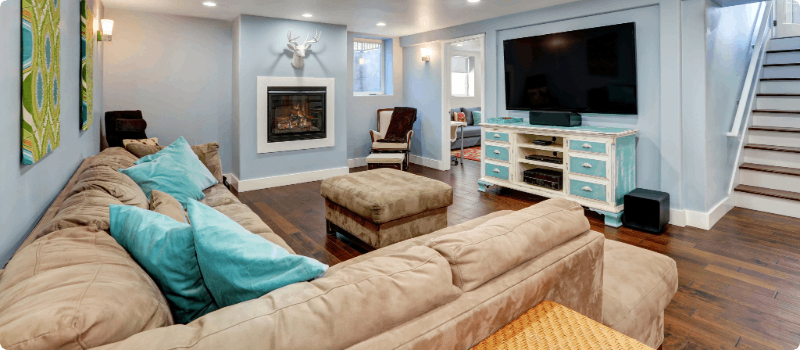
Inland Flood coverage helps financially protect you from flash flood damage. Covered events include flooding from inland waters overflowing onto normally dry land.*
Ideal basement moisture levels are between 30 - 50%. Anything below 30% is too low and can lead to structural changes in your home, causing gaps between windows and doors. Aside from health issues, insufficient moisture levels can also cause wood floors to creak and damage your belongings.
Moisture levels above 50% can lead to mildew, mold and bacteria growth. That environment can cause serious health issues. Excessive moisture can also damage walls and carpets, causing your home and belongings to rot.
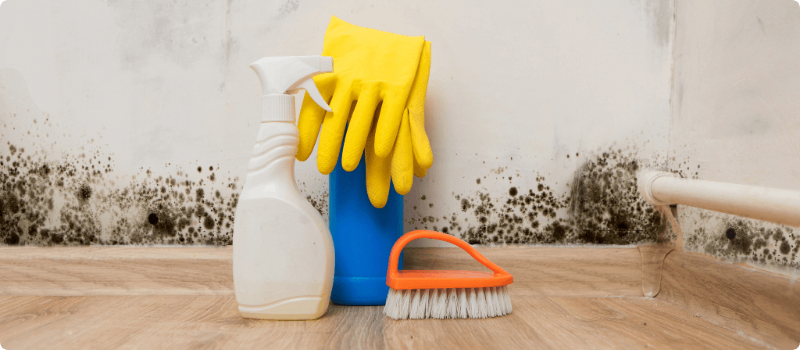
One of the best ways to address basement humidity levels is to manage the moisture at its source. While consulting with a professional is always helpful, you can start your search using the following methods.

Gaps and cracks in windows, doorways and walls can cause excess moisture to collect in your basement. Sealants like caulking and weatherstripping can help close the gaps and fix the issue.
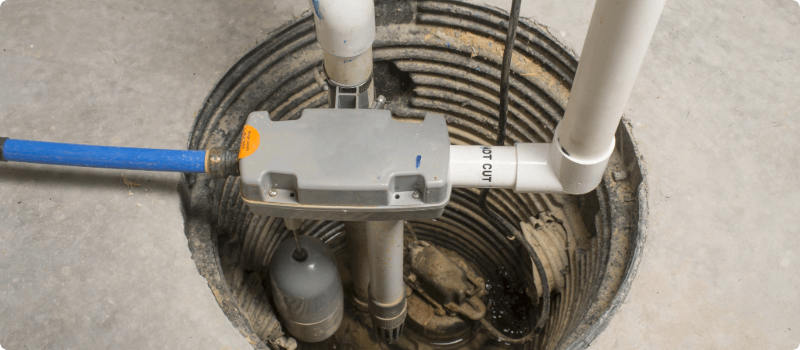
If your sump pits and drains are not airtight, the excess moisture from the pipes can create a humid environment. Maintaining your basement's vents and sump pump can help you manage moisture levels. Consider getting it checked by a professional once every three to four months for optimal performance.
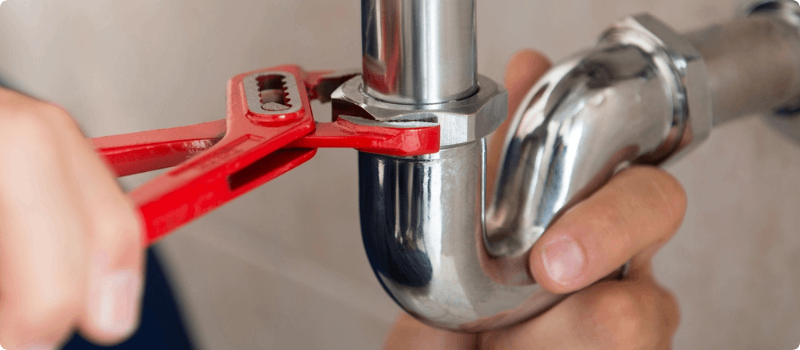
Leaking pipes, washing machines and water heaters can affect your basement's humidity. They can also cause other issues, such as a spike in your utility bills.
To spot them, look for wet spots, rust or condensation around these areas. Beyond helping you maintain healthy basement humidity levels, it helps you catch costly leaks early.
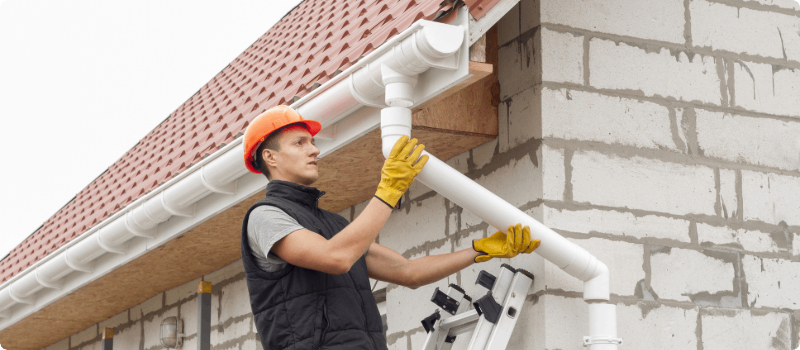
Clogged gutters can pool rainwater and melting snow around your home’s foundation. Consider positioning gutter spouts to draw water away from your home. Additional outside water can saturate your basement floors and walls, increasing moisture levels.

Some humidity issues are more severe than others. However, there are several accessible tools you can use to maintain appropriate moisture levels in your basement and home. Consider the following tips.
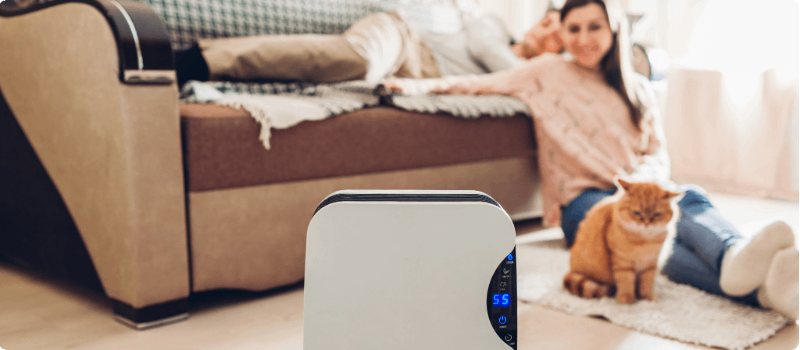
Several dehumidifier types, such as refrigerant, desiccant and whole-house ventilation systems, are available. They can help you manage moisture levels in your entire home, a single room or a crawlspace. All serve one purpose: To remove excess moisture from the area.
Before purchasing yours, consult an expert. They can help you find a suitable model and size that best addresses the humidity in your basement.
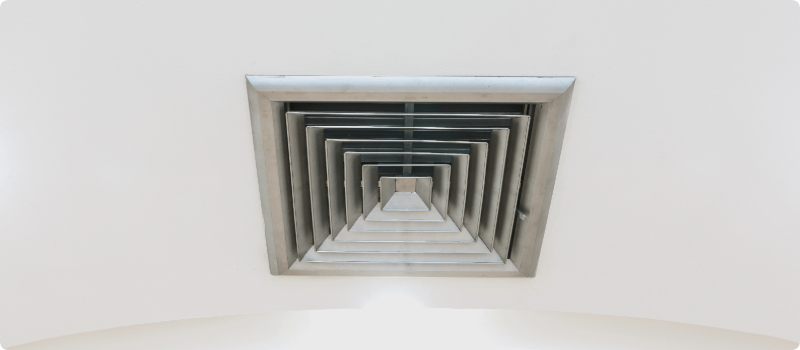
Another excellent way to manage your basement's humidity levels is to keep it well-ventilated. Installing an exhaust fan is a great option if you can't accomplish that naturally.
An exhaust fan should be installed in a window or exterior-facing wall to draw the moist air away from your basement. As a bonus, exhaust fans can circulate the air, which helps control unwanted odors.
If you need a fast-acting, inexpensive, moisture-removing option, chemical absorbers, such as silica gel, may be able to help. They're typically sold in home improvement stores and can be placed in other parts of your home as well.

Water leak detectors help you catch leaks early and boast a variety of capabilities, such as sending real-time alerts to your phone.
You can install them on sinks, appliances and water heaters. Getting one may also qualify you for our smart home discount.
A humidity monitor can help you track your basement's humidity levels. Some dehumidifiers and exhaust fans come with them built in. You can also buy a stand-alone model that hangs on your wall.
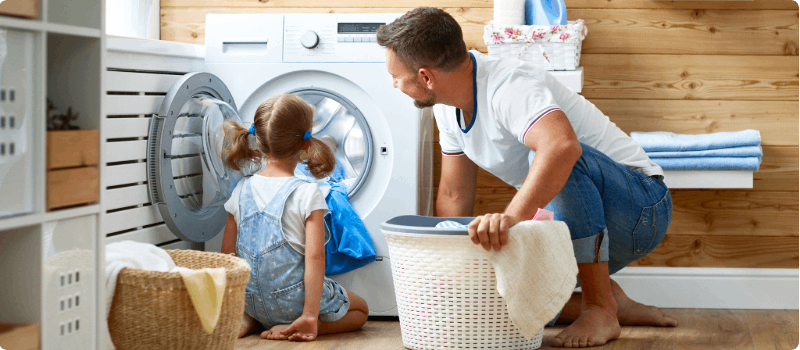
Our standard home insurance may help protect you from sudden, accidental water damage. Qualifying events may include burst pipes or broken-down appliances.**
If you want more protection from unexpected losses, talk to your American Family agent about the following coverages:

*Coverage provided by adding the Inland Flood optional endorsement. This endorsement does not satisfy mandatory flood insurance coverage should it be required by your federally regulated lender for your home mortgage or loan. This insurance product is not affiliated with the National Flood Insurance Program (NFIP). Please check with your agent and read the policy and endorsements for exact details on coverage limits and exclusions. Coverage applies after the property deductible has been met.
**This information represents only a brief description of coverages, is not part of your policy, and is not a promise or guarantee of coverage. If there is any conflict between this information and your policy, the provisions of the policy will prevail. Insurance policy terms and conditions may apply. Exclusions may apply to policies, endorsements, or riders. Coverage may vary by state and may be subject to change. Some products are not available in every state. Please read your policy and contact your agent for
***Hidden Water Damage coverage is an optional coverage. May not be available in all states. Some restrictions apply to seasonal homes and manufactured homes. The leak must occur from within a plumbing, heating, A/C, fire sprinkler or a home appliance. Refer to your policy documents for coverage limit details. Coverage applies after the property deductible has been met. Mold damage limited to coverage limits provided by your homeowners policy.
†American Family Insurance is a participating company in the National Flood Insurance Program (NFIP). NFIP is managed by the Federal Emergency Management Agency (FEMA), a component of the U.S. Department of Homeland Security (DHS). Flood insurance is a separate policy underwritten by NFIP.